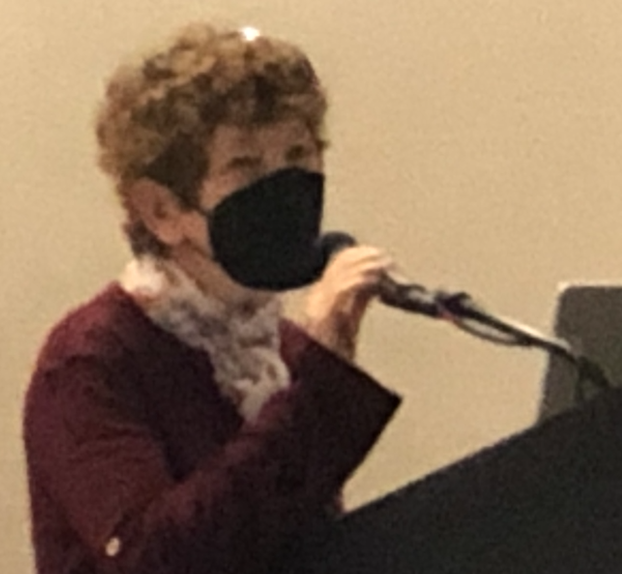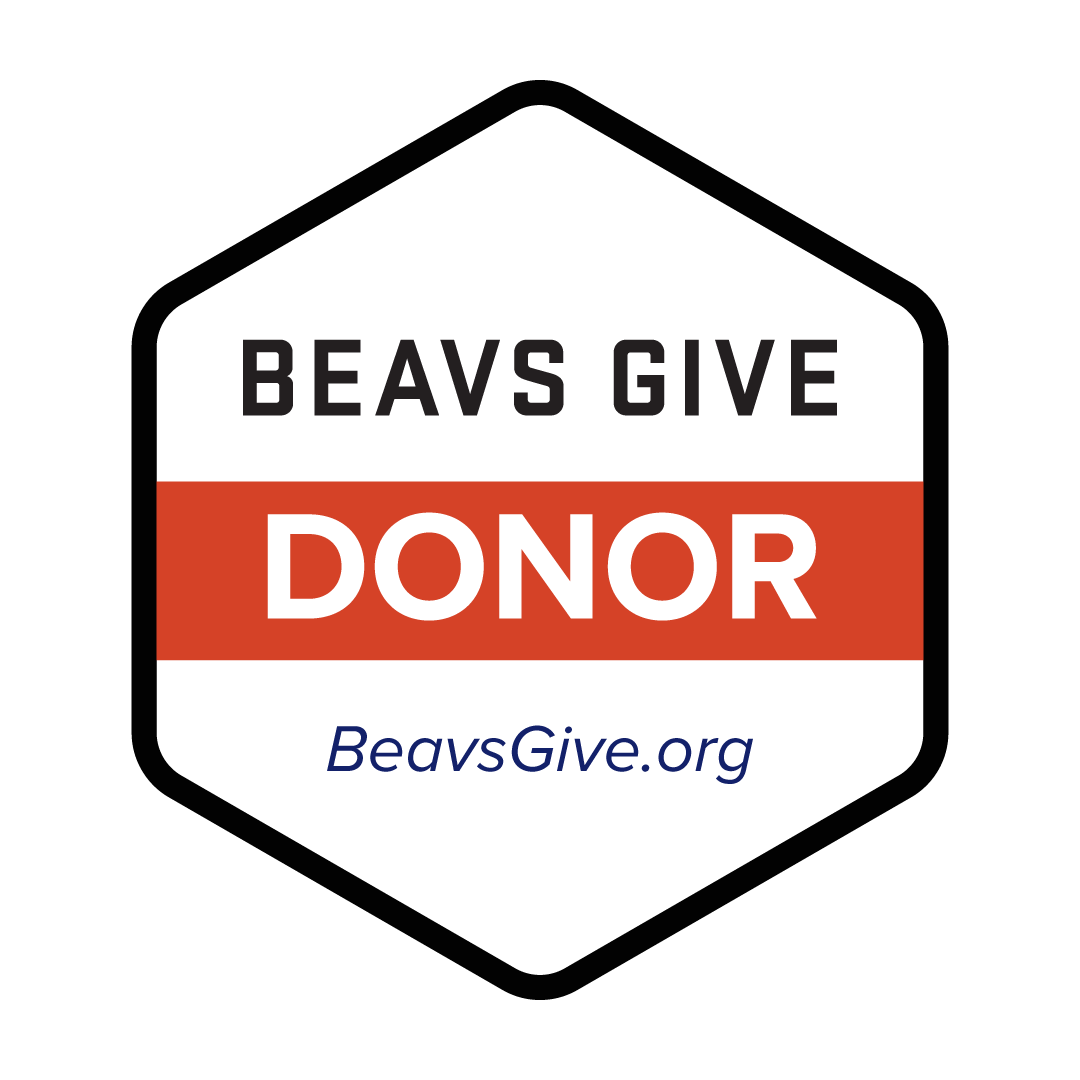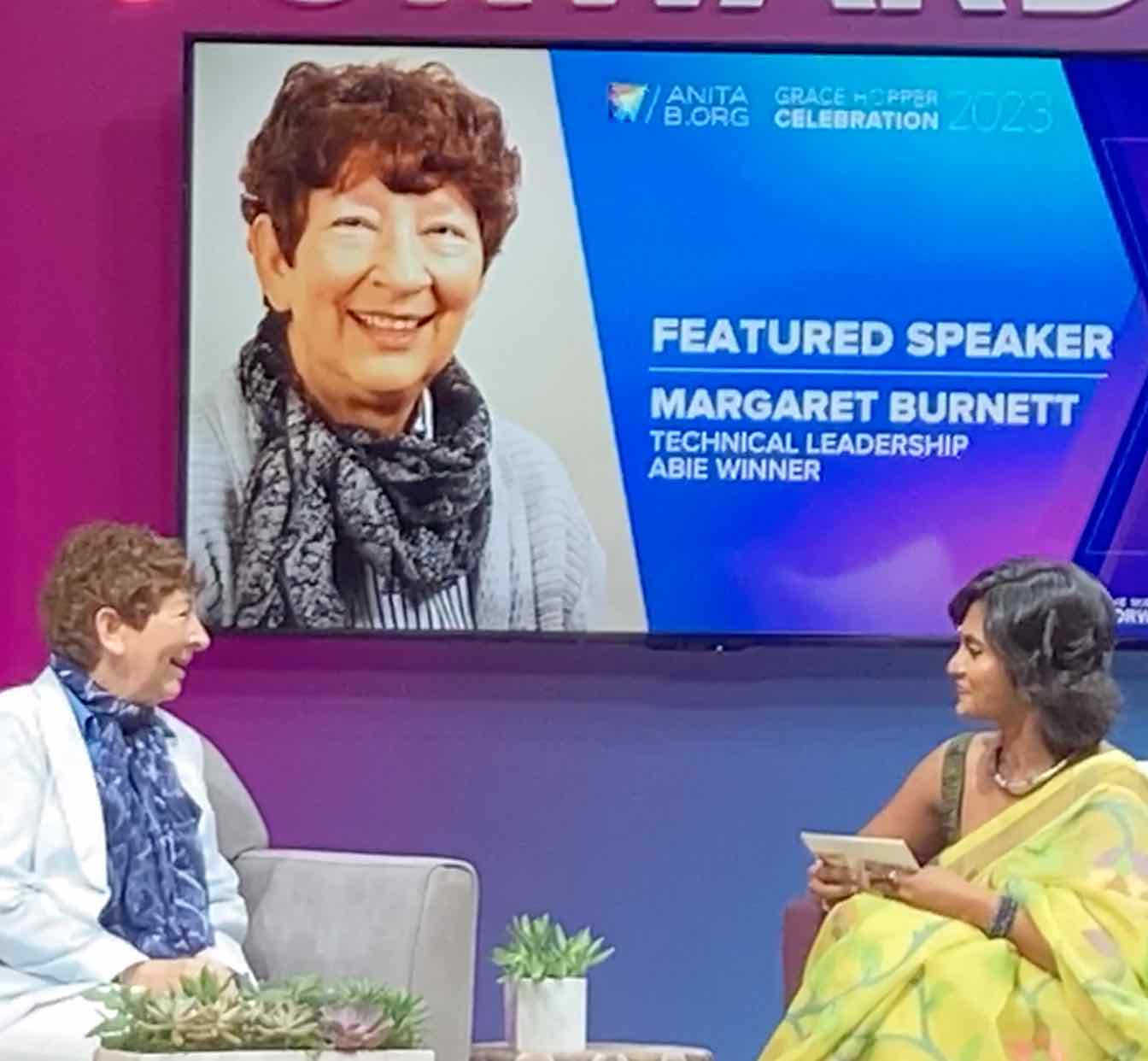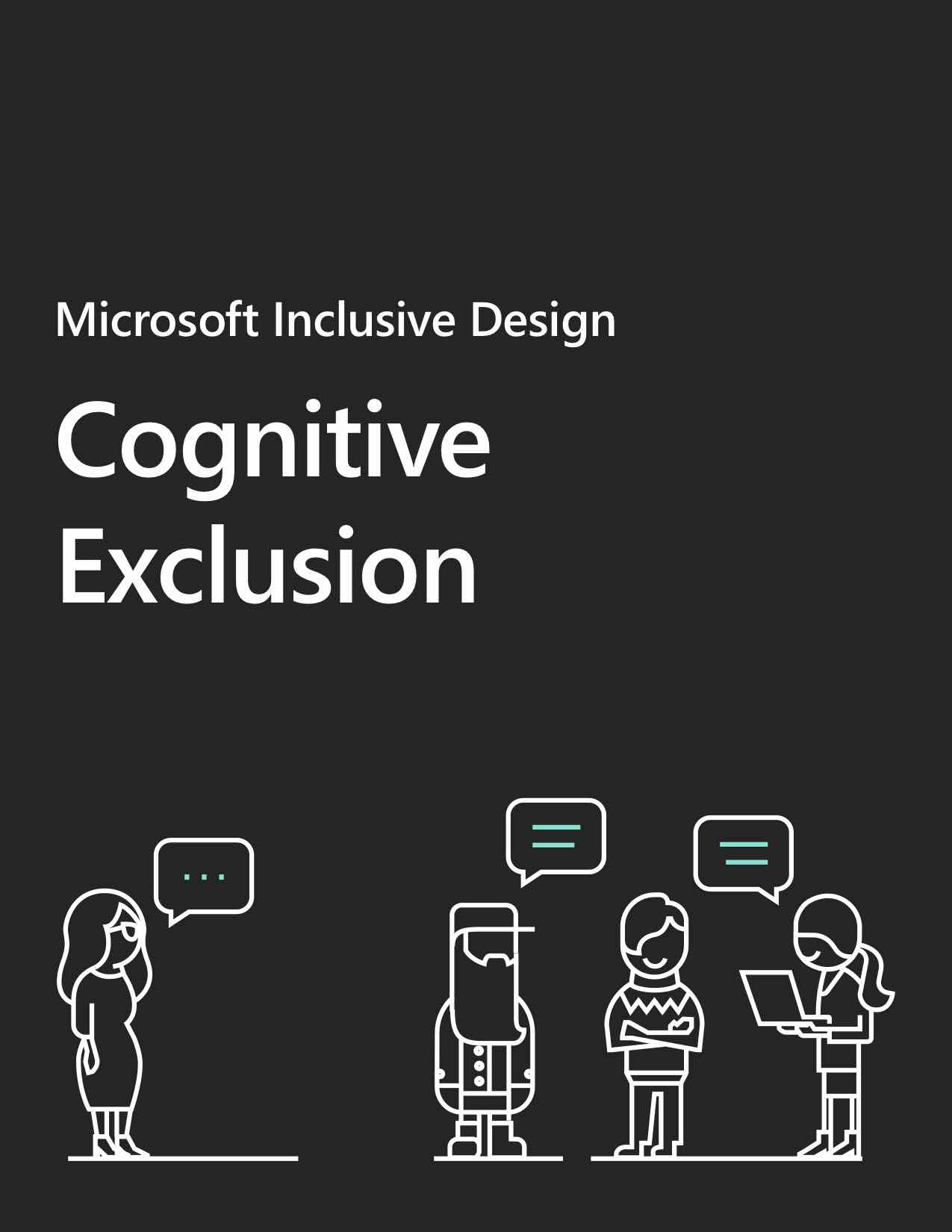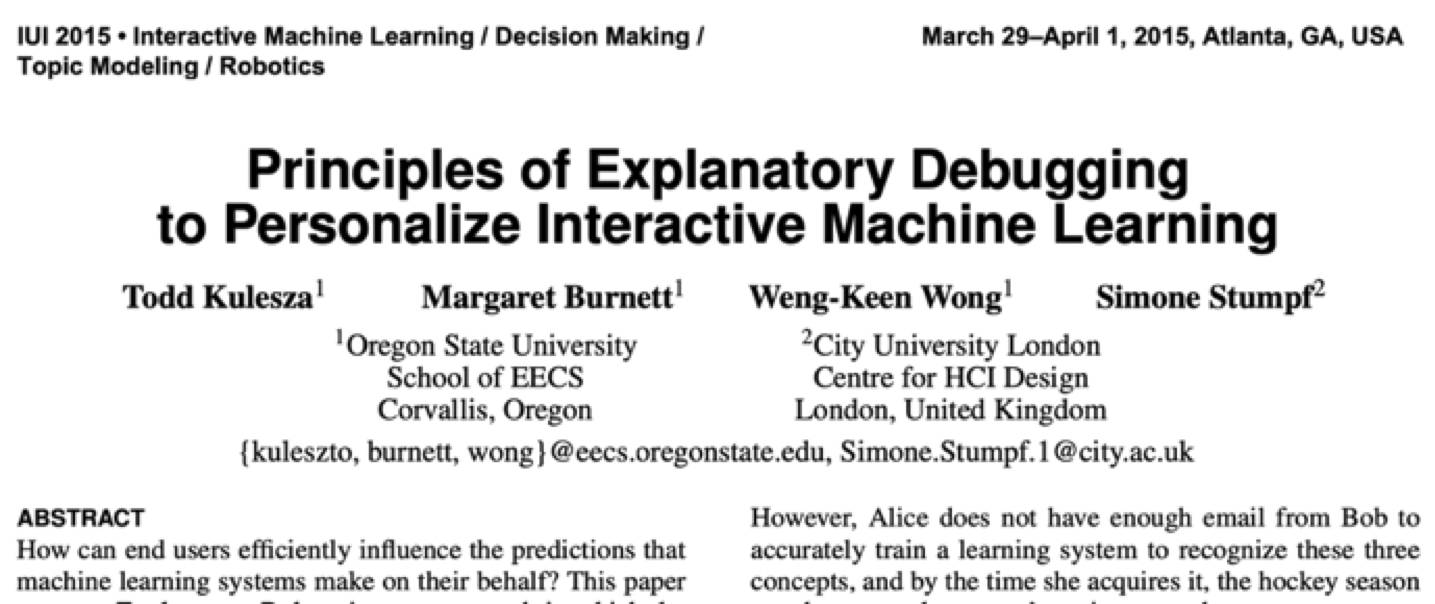Margaret M. Burnett
Distinguished Professor
School of Electrical Engineering and Computer Science
Oregon State University
Corvallis, Oregon, 97331-5501, USA
email: my-last-name at eecs dot oregonstate dot edu
voice: 541-737-2539, FAX: 541-737-1300
office location: Kelley Engineering Center, 3051
Zoom location: https://tinyurl.com/MargaretBurnettZoom
Zoom Passcode: If you're in one of my classes, see the class Canvas page for this information. If you aren't in my classes, send me email for the passcode.
News
Bio, Research, and Interests
Margaret Burnett is a Distinguished Professor at Oregon State University. She began her career in industry, where she was the first woman software developer ever hired at Procter & Gamble Ivorydale. A few degrees and start-ups later, she joined academia, with a research focus on people who are engaged in some form of software development. She was the principal architect of the Forms/3 and FAR visual programming languaes, and co-founded the area of end-user software engineering, which aims to improve software for computer users who are not trained in programming. Her end-user software engineering work included producing seminal work in actionably explaining AI to ordinary end users. She co-leads the team that created GenderMag, a software inspection process that uncovers gender inclusiveness issues in software from spreadsheets to programming environments. Her newest projects related to GenderMag include the InclusiveMag meta-method, SocioeconomicMag, and a new analytical approach to intersectionally inclusive software. Burnett is an ACM Fellow, a member of the ACM CHI Academy, and an award-winning mentor. She has served in over 50 conference organization and program committee roles. She was recently honored with the 2022 IEEE CS TCSE Distinguished Women in Science and Engineering (WISE) Leadership Award and the Grace Hopper Conference's ABIE Tech Leader Award.
Recent talks
More Information
Upcoming Presentations and Events
You can hear
about some of the projects I've been working on lately at one of these events:
Teaching
This year I'm teaching:
Fall 2025:
- CS 468/568: (HCI 2) Inclusive Design with Personas. This course is offered every year. Here is the class Canvas site.
Winter 2026:
- CS 564: Field Studies in HCI and SE. This course is offered once every 2-3 years. Here is the class canvas site.
This course deals with the type of empirical study known as the "case" study. These are studies that collect data from natural software usage/development situations as they really occur in the field, in which the researcher does not manipulate or "control" anything. The course is an end-to-end coverage of the process. We will mainly focus on case studies involving humans in the field. You will actually conduct a field study as part of this course. (Super-old, pre-Canvas version to give an idea.) The course does not cover lab studies. NOTE: This course is offered at most every 2nd year, so if you need this course, this is your opportunity to take it.
Recently, I've also taught:
- CS/ECE 507: EECS Professionalism, Ethics, & Diversity (Fall 2016).
- CS519: Personas Methods in HCI and User-Centered Design (Winter 2015).
- CS 569/589: Special topics: Empirical lab studies of software development (Winter 2014). This course will cover how you go about designing, preparing for, running, analyzing, and writing-for-publication lab experiments of programming situations involving human subjects. This is an end-to-end coverage of the entire process, and will put you in a position to conduct lab studies of your own with human subjects.
-
CS 565: (HCI 1 for grads) Introduction to HCI. This course is offered every year. Here is the 2019 version.
- CS 569: Special topics: Empirical methods for field (case) studies in software engineering (Fall 2014). This course deals with the type of empirical study known as the "case" study. These are studies that collect data from natural software development situations as they really occur in the field, in which the researcher does not manipulate or "control" anything. The course is an end-to-end coverage of the process. We will mainly focus on case studies involving human software developers in the field. You will actually conduct a field study as part of this course. The course does not cover lab studies.
- CS 564: FIELD STUDIES IN SE AND HCI (Winter 2021).
This course deals with the type of field study known as the "case" study. These are studies that collect data from natural software-based situations as they really occur in the field, in which the researcher does not manipulate or "control" anything. The course is an end-to-end coverage of the process.
We will focus on case studies involving human users in the field. You will actually conduct a field study as part of this course. The course does not cover lab studies.
- CS 584 (Fall 2013).
- CS 352: (HCI 1 for undergrads) Usability engineering.
Here is Winter 2019's pre-Canvas version.
Office Hours
My Winter term office hours, through March 18, will be the following, except when the University is not in session or when I'm out of town:
- Tuesdays 1:00ish (as soon as I'm back from a lunch meeting) - 2:30
- Fridays 3:00-4:30
- If you're a student in my current class, see also the Canvas site for the TA's office hours
Exceptions: Occasionally office hours will need to be moved or cancelled due to conflicting events, but I'll try to give you plenty of advance notice.
Graduate Student Mentoring
Here are my current graduate students and postdocs:
Sadia Afroz (Ph.D., co-mentored with A. Sarma),
Alec Busteed (M.S./Ph.D),
Md Montaser Hamid (Ph.D., co-mentored with A. Sarma),
Bhavika Madhwani (M.S),
Fatima Moussaoui (M.S./Ph.D.)
Recently graduated: Puja Agarwal (M.S.), Andrew Anderson (Ph.D.), Chimdi Chikezie (M.S.), Rupika Dikkala (M.S.), Jonathan Dodge (Ph.D.), Abrar Fallatah (Ph.D.), Rosalinda Garcia (M.S.), Sruti Srinivasa Ragavan (Ph.D.)
Where do my grad students and postdocs end up?
- Ten of my PhDs/postdocs became professors at various colleges and universities.
- Four became researchers/scientists in academic research institutes or industrial research labs (Carnegie-Mellon, IBM Research, Microsoft Research).
- The rest of my PhD students and postdocs (and some of my MS students too) have become senior UX (User Experience) researchers at companies like Google and Microsoft.
- Most of the rest of my MS students became software developers, tech company administrators/gurus, and/or positions in business, aviation, ...
Last updated: Jan. 31, 2026
